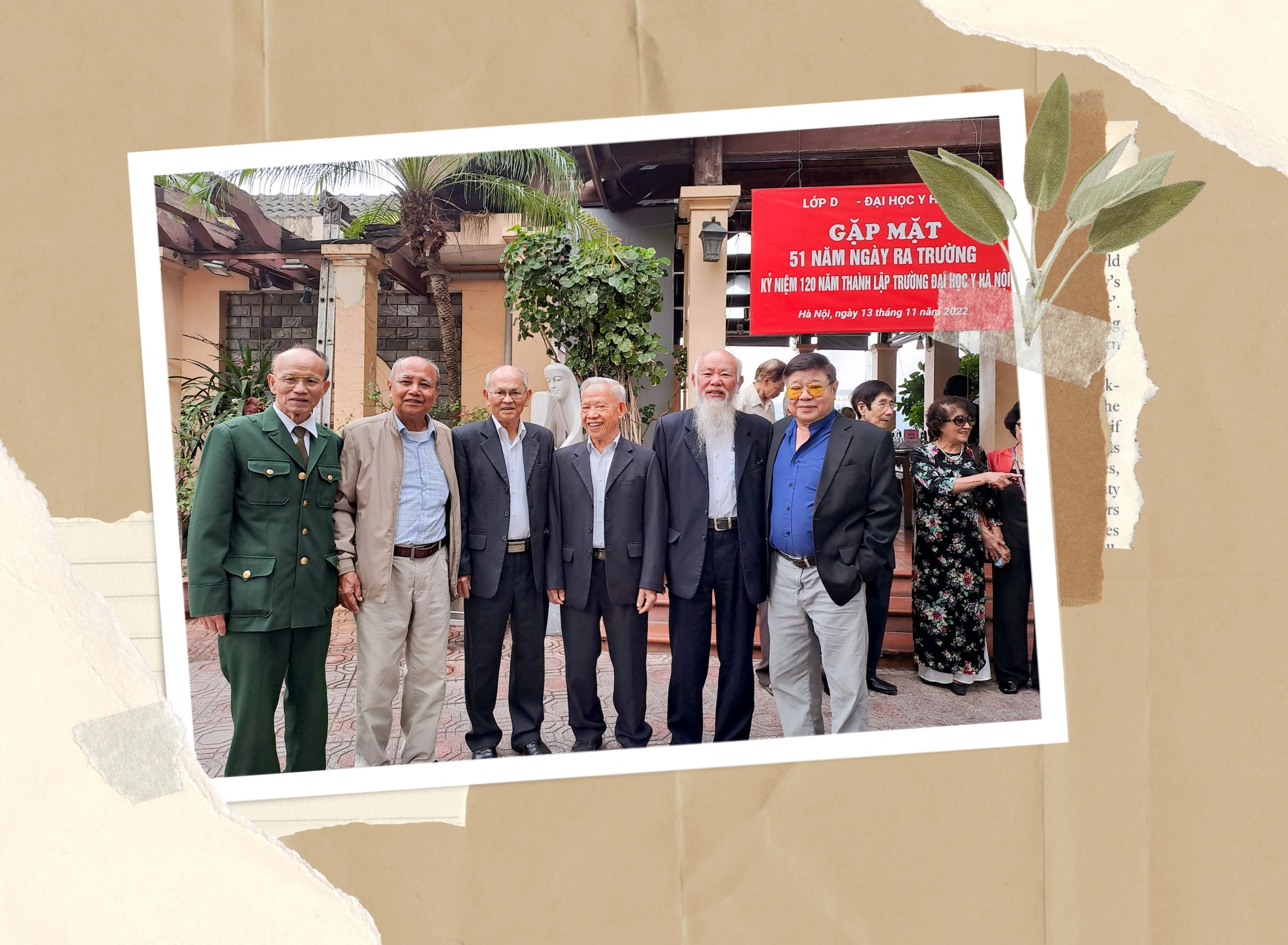


In the old house, Mr. Dang Duy Huynh in Phuc Son commune (Anh Son) flipped through the pages of the war diary to find his youthful years, where there was nothing but the scene of falling bombs, exploding bullets, the spirit and fighting will of the soldiers, the camaraderie and the sense of duty to the rear.
The neatly folded pieces of paper, the neat and straight ballpoint pen handwriting, all encapsulate the thoughts and feelings of the military medic from the Western region of Nghe An. Mr. Huynh shared: "During 12 years of military service, going through fierce battles, facing death many times, I was still determined to keep the diaries, that was the most valuable asset when I returned home."
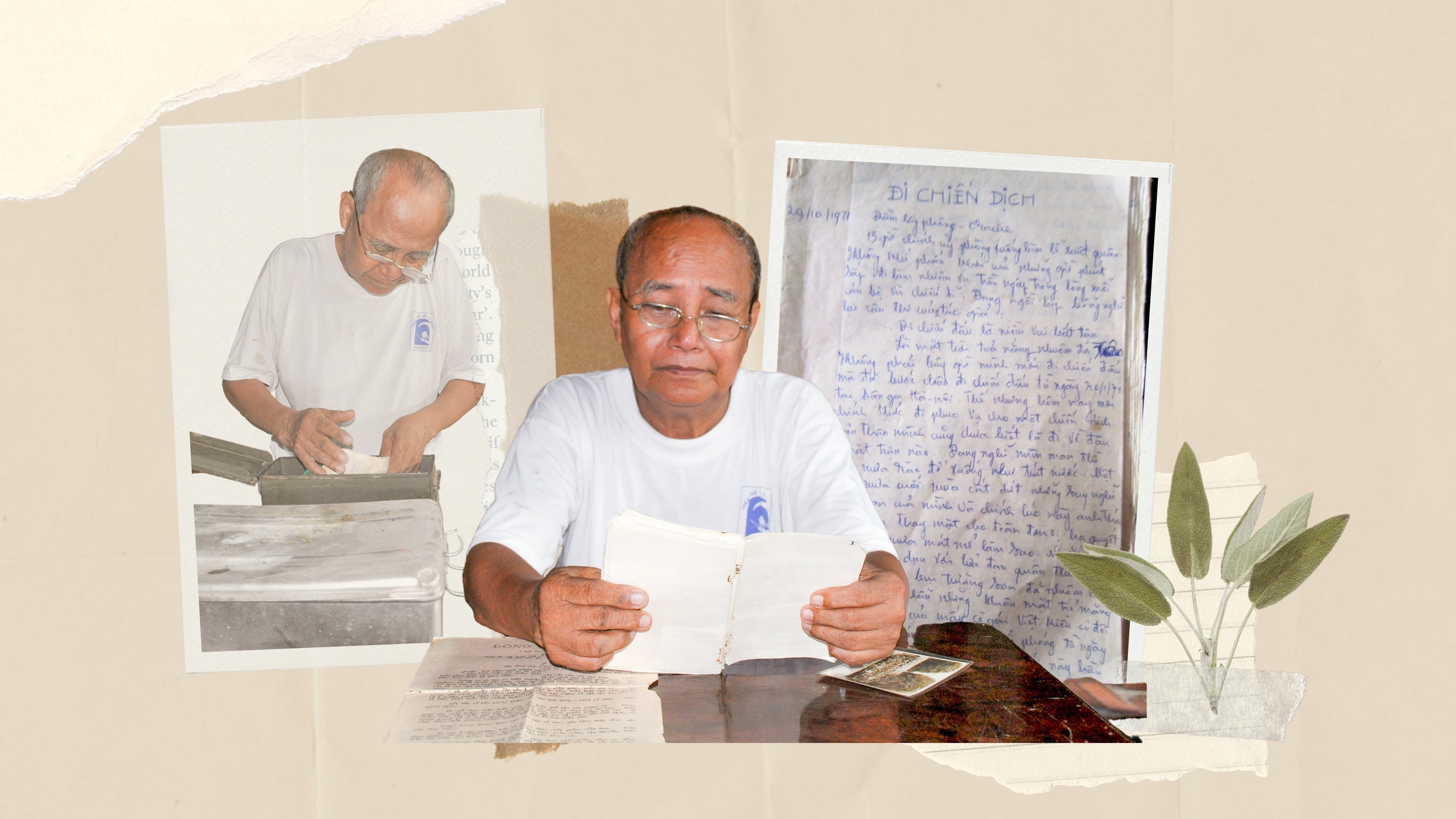
The diary entries took veteran Dang Duy Huynh (born in 1946) back in time, back to his third-year student at Hanoi Medical University. At the end of 1970, when the war against the US was extremely fierce, the southern battlefield needed human resources, especially medical staff and doctors to care for and treat wounded soldiers, Mr. Huynh and 99 classmates were mobilized.
The medical student was able to return home to visit and marry a village school teacher, then hurriedly went to the capital to train, waiting for the day to enter the battlefield. In early 1971, Dang Duy Huynh temporarily put down his pen and paper, said goodbye to the lecture hall and became a military medic.
The luggage they brought to the Southeast battlefield, in addition to uniforms, weapons, medicine and other necessities, also included a notebook of cellophane paper and a few ballpoint pens. Young soldiers leaving university were often very romantic, they had the habit of writing down daily stories and expressing their thoughts and feelings.
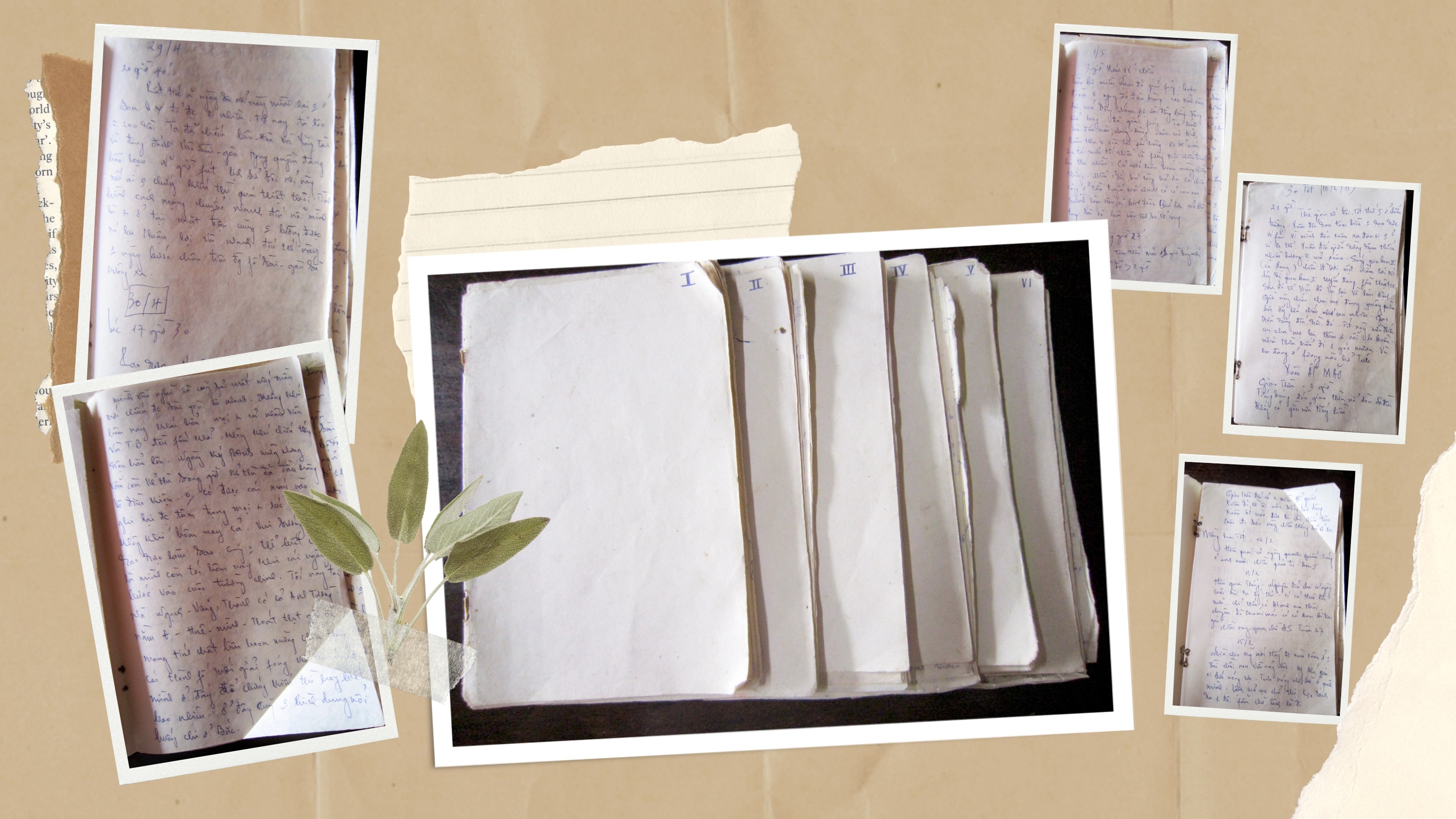
Then, when the war was over, there were many valuable diaries that added to the historical sources, helping future generations better understand the soldiers during the war against the US. Among them, we must mention “Dang Thuy Tram’s Diary” and “Forever 20” by Nguyen Van Thac, both authors sacrificed their lives in the war but their names will live forever with their diaries.
Luckier than his fallen comrades, Mr. Dang Duy Huynh was only injured, returned home to reunite with his family and brought his diaries with him. His diary is divided into 6 volumes, each numbered, recording the war, work, life and thoughts of a military medic during the 5 years (1971-1975).
There are many pages recording fierce battlefield scenes, typically:“At 4:30, B52s hit the parking lot, but the car was only crushed by a tree. While taking a nap, we suddenly jumped out of our hammocks and walked to the tunnel door when the first series of bombs had already exploded. At 5:00 pm, the whole group crossed the Saigon River… It was like death was right in front of us. Several helicopters circled around us. The whole group only had one AK. We knew that if it discovered us, we would either be captured alive or shot dead…”
And this is the pain of hearing that a comrade has died:“The news that Thich had died while on duty in Trang Bang (entering the enemy’s tank position). Just yesterday, I entered the General Staff gate and saw Thich coming out with an AK. We didn’t have time to talk, just said hello. That’s it! Thich will remain on this land when victory is approaching. Goodbye, Thich!”
And in that diary there is also the endless sadness from the home front when receiving news of a loved one's death:“Received a letter from my wife. I am very sad to hear that you two have passed away. I am so sad, who can I tell at this time? Uncle! I still made an appointment to come back and see you two, but you are gone, so what can I do? The morning of January 4, 1971, when I said goodbye to you two to go on duty, was the day you two and I said goodbye to each other…”.
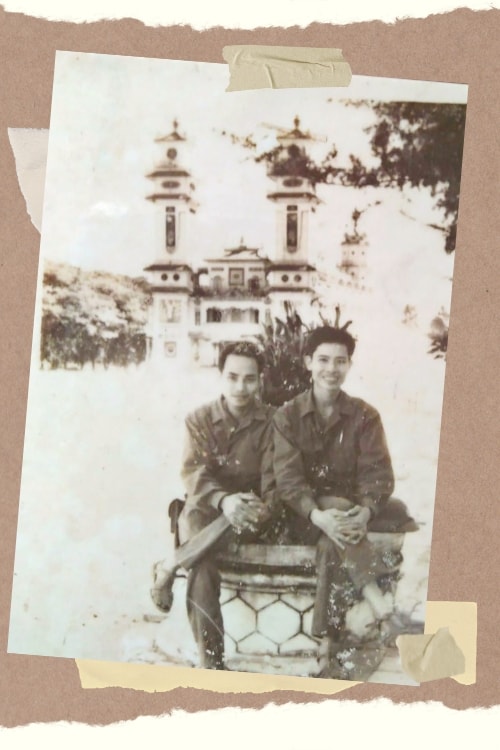

For soldiers who are with guns all year round, the greatest desire is to quickly reach the armistice day so that they can rest and have a carefree sleep. And that day has come, soldier Dang Duy Huynh recorded his feelings on the first day after the Paris Agreement:“January 28, 1973: The day of the armistice has come, after many years of struggle filled with hardship, sacrifice, hardship and fierceness. The ceasefire began at 7am today according to the Agreement, but some surrounding areas still have the sound of heavy artillery. Over the past few days, B52s have been attacking, but less frequently. Last night, the enemy still attacked, but only a few times. Today, all the hopes and expectations of the nation have come. The atmosphere of the ceasefire seems really pleasant. The family is probably preparing to celebrate a New Year without gunfire, which has not been possible for many years…”.
Welcoming the Year of the Cat (1975) in the middle of the battlefield, the soldier could not help but feel excited and moved. On New Year's Eve, the soldier confided his feelings:“30th of Tet (February 10, 1975). 9pm… Time flies, the 5th Tet in the battlefield. Spring has come, why isn’t my soul excited? Is it because I’m celebrating Spring far from my unit? Maybe so!… Right now, my parents are probably gathered around the fire, probably missing me a lot. New Year’s Eve is coming. If this Tet is missing me, my parents will have more worries and sadness, and the house will be empty…”.
And this is Mr. Huynh's mood in the sacred New Year's Eve:“Spring of the Year of the Cat, New Year's Eve, midnight… New Year's Eve has come to every corner of the country/ Spring has come, oh, life is overflowing/ Spring of the Year of the Cat takes us to battle/ In this battle, victory will be ours”.
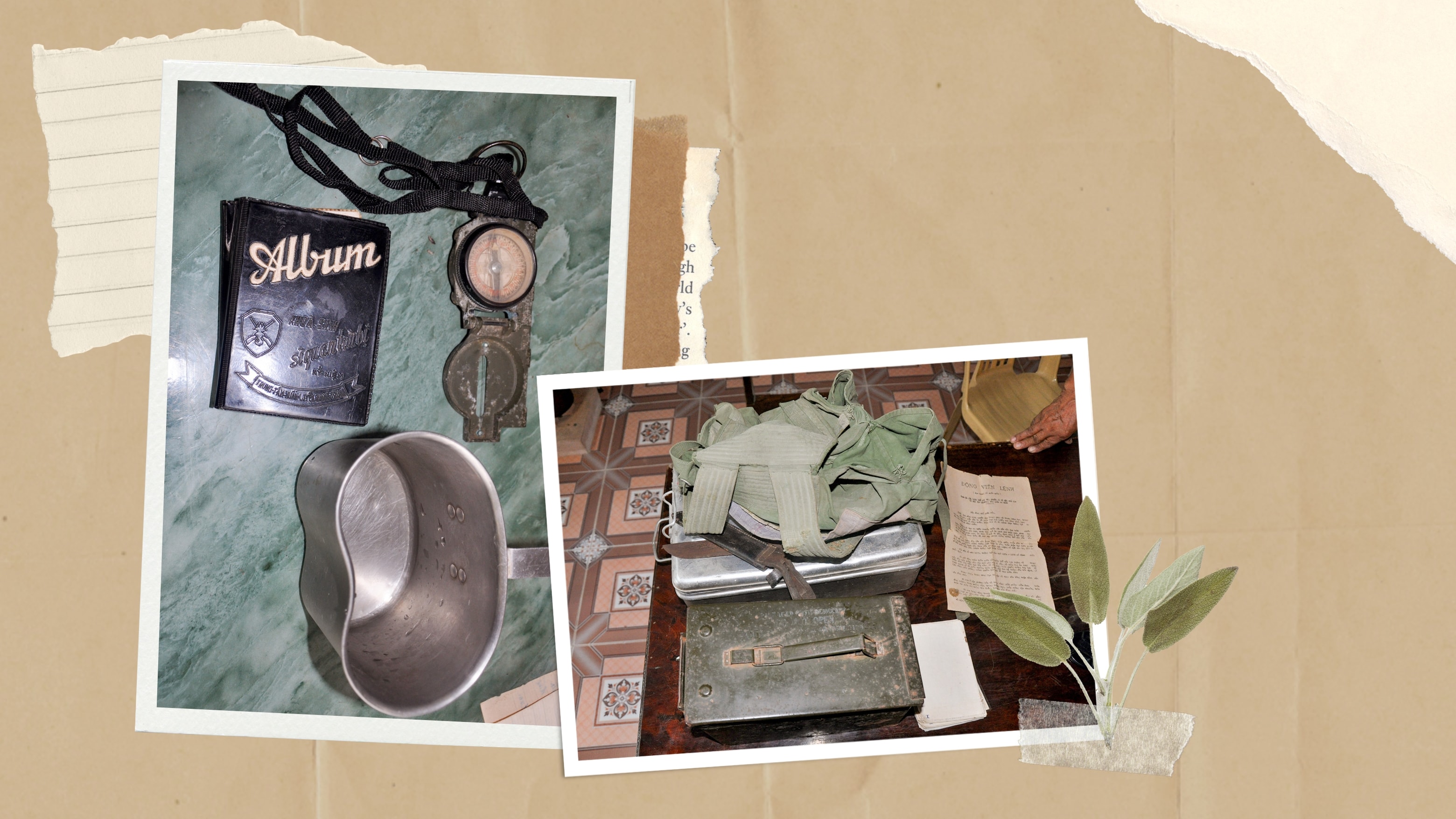
Unlike Ms. Dang Thuy Tram, Mr. Nguyen Van Thac and many other heroes and martyrs, military medic Dang Duy Huynh was present on the day of the Great Spring Victory in 1975, witnessing the moment of victory and the burst of happiness.
That moment was recorded by him:“April 30, at 5:30 p.m. What excitement and joy. At 5:00 p.m., the radio announced that Saigon had been completely liberated. I still thought it would take several weeks to capture Saigon quickly. Today’s atmosphere was completely different, everyone, both staff and wounded soldiers, were excited, the atmosphere of victory was bustling. The day of the Paris Agreement was a happy day, but the enemy was still there, but the enemy had now surrendered unconditionally. Unfortunately, there was no camera to record everyone’s mood at this moment and the atmosphere today. What joy and excitement…”.
The diaries were carefully kept by Mr. Dang Duy Huynh in an iron medicine box brought back from the battlefield. He also kept many souvenirs of his soldier life such as a backpack, a water bottle, a dagger, and a flashlight.
Preserving those mementos, the former military medic wanted to forever engrave the vibrant, heroic years of his youth. Every time his children and grandchildren gathered and his comrades visited, he would flip through his diaries and mementos, each diary page and each memento was a story…
